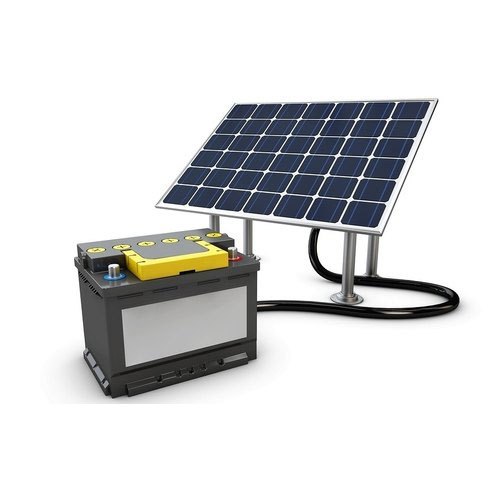You wish to disconnect from the electrical grid or minimise your monthly payments. In this instance, self-consumption is your only alternative. This refers to the photovoltaic system with one or more solar batteries. If you’re interested, here’s some additional information about the advantages of solar-powered batteries.
The global photovoltaic solar panel battery business is valued hundreds of billions of dollars. And the expansion prospects are phenomenal: In the next three years, 6 million batteries are anticipated to be sold. Consequently, it is a reasonable assumption that India gains little from this new market.
There are four primary types of solar batteries used to store the electricity generated by photovoltaic systems: lead (open lead, AGM, and Gel) and lithium batteries. Determine the various technologies now accessible on the market, as well as their qualities, benefits, and drawbacks.
Depending on the technology employed, and in order to prolong their lifespan, solar batteries are never entirely depleted. In order to prevent them from discharging past a specific threshold, the batteries are largely “oversized” relative to the existing installation. If the manufacturer sets this barrier at 50 percent, for example, only 50 percent of the battery’s capacity can be used. This technology allows solar batteries to be better preserved over time.
If you wish to reduce your energy use, the ideal solution is a solar storage battery. In fact, solar batteries store and save solar energy in order to redistribute it when in use. Thus, recharging is free. Simply expose its energy sensor to the sun to store the sun’s free power and energy. Solar energy collectors constitute the entirety of photovoltaic installations. These devices can be installed atop a residence, business, or vehicle (for batteries, car, etc.).
The benefits of home batteries
- Photovoltaic systems and the usage of solar storage batteries in a residence offer numerous benefits.
- Initially, you will be able to utilise energy that you have generated yourself.
- Second, you will enter a self-consumption phase in which you will consume little to no electrical energy as you will be able to generate all of your own power. This minimises your monthly energy costs.
- Finally, the choice of solar batteries for residential use is a fantastic option for distant dwellings. Because in these living conditions, when the electricity network is intermittently unavailable or unstable, you must take care of yourself differently.
The expected lifespan of a solar battery
In general, the lifespan of an inverter battery is measured by the number of cycles it can complete before becoming ineffective, i.e. its capacity to be charged and discharged. Each battery will gradually lose capacity with time and regular discharge. The fewer cycles a battery undergoes, the longer it will last. When a battery has lost around 20 percent of its original capacity, it is expected that it will become inefficient. In terms of advantages, lithium solar batteries have a long lifespan. Lithium batteries are now the most efficient and durable, with a lifespan of up to 6000 cycles! This amount of cycles is equivalent to an average lifespan of ten to twelve years for premium lithium solar batteries. When it comes to Tubular Lithium ion batteries, this durability increases even further. In fact, lithium ion batteries can last for twenty years without failing. This advantage influences the cost of lithium solar batteries.
Lithium-ion solar batteries are now widely recognised as an excellent solar storage alternative. This is owing to the numerous benefits offered by these batteries.






